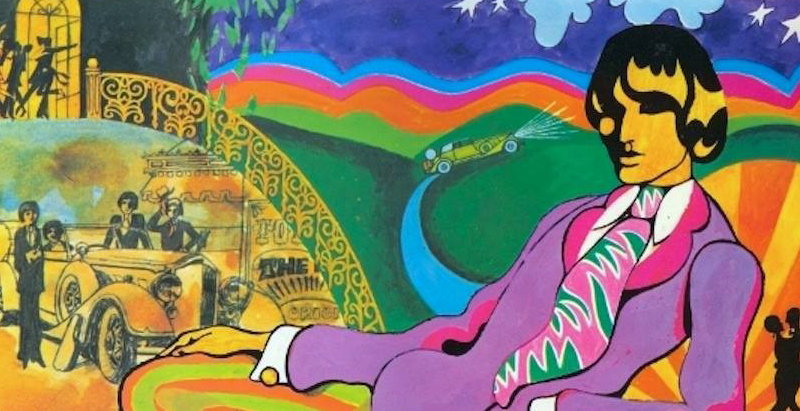Home Is Where The Heart (of Society 3.0) Is
Gerard Tannam, in his Submission to CongRegation, the UnConference taking place on November 21st 2020 wrote:
In 2020, to be social is to potentially put yourself and others in your social circles in harm’s way, so how do we rethink and reconfigure our society for both the individual and the common good?
My first memory of being part of a social group sees me sitting at the dining-room table which has been cleared to make way for the family’s record-player, and we’re listening to Oldies (but Goldies), a collection of Beatles’ singles released earlier in the decade. It’s the late ‘60s, I think, which makes me four or five, and I can see from the faces of my parents and brothers and sister that we’re sharing something really special, and it feels great to be part of it. Society 1.0 for me, I guess.
Fast forward to 2020, when social distancing rather than social togetherness is the norm, and it seems that my world has shrunk again to my dinner table, and I dare not socialise beyond the four walls of my home for fear of putting myself and others in harm’s way. The early days of lockdown, when we were inspired with the heroism of sticking together by remaining apart, seem even more of a distant pipedream than those ‘oldie but goldie’ days which are instantly evoked by something as beguiling as the opening bars of Yesterday.
From discussions with family and friends, I don’t think I’m alone in my time-travelling back to an era of homemade dinners and freshly baked scones, and it seems to me that many of us trace an idealised view of what society might be to our early days around the table. So perhaps that might be a good place too for us to begin the task of making tomorrow’s Society 3.0 everything it should be, even if tomorrow’s soundtrack is no longer to be the Beatles.
When we make home the heart of our society, it gives us something of a blueprint for how we might design and build the other structures beyond our four walls. It’s only when we recognise that a sense of belonging and togetherness, even when apart, underpins both our individual and therefore our collective sense of wellbeing that we can begin to truly reimagine our society and deliver a world where all of us can feel very much at home.
So how does Society 2.0 stack up against our common and inbuilt need of a place to call our own? Even our current social distancing can’t disguise the fact that too many of us live in a society which hasn’t delivered us a real home of our own. Beyond those sleeping on our streets and in our doorways, there are many more housed in places and conditions where the four walls confine and close in on them, creating an even more damaging sense of social distance that will last long after the more public restrictions and constraints of our time are a faint memory.
As a result, many of us are cruelly distanced from one another, and those of us most in need of a good neighbour are unable to bridge the chasm that’s been created between us and them and must rely instead on the kindness of strangers. And nobody wishes to rely on that.
So, as we figure out the shape and the substance of the new worlds which we’re creating using the latest skills and tools at our disposal, we must make sure that home is where the heart of our Society 3.0 is. It’s only in providing for every one of us a place that we can call home that we can each begin to emerge confidently into the open spaces between us and forge the relationships that underpin our social life or society.
Whatever version of Society that we wish to build, whether it’s realised in a family discovering a shared taste in music or an outsider being made welcome to participate in all of the good things on offer, a society that’s fit for purpose is always founded in each of us having a place that we can call our home.
Four Takeaway Points:
1. Society 3.0 is most likely to be inspired by our individual and collective senses of Society 1.0
2. This period of social distancing heightens our realisation of the importance of home
3. Many of us are cruelly distanced from one another, even before the social distancing that’s become our norm for 2020.
4. A society that’s fit for purpose is always founded in each of us having a place that we can call our home.


